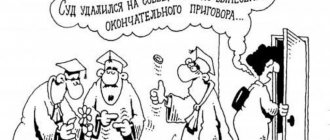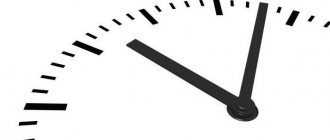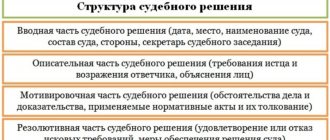Disadvantages of a special procedure for considering a criminal case
What are the disadvantages in particular order? The most important disadvantage of the special order is that the court does not establish the circumstances of the crime. The judge does not conduct research and evaluation of evidence collected in a criminal case. In this case, circumstances characterizing the personality of the defendant, and circumstances mitigating and aggravating the punishment can be examined. A special hearing is usually held once, no witnesses are called to the court, no evidence is disclosed, the case is considered within an hour or two, and such consideration is formal in nature.
For the defendant, this is rather a minus, because if an unscrupulous investigator did not collect the necessary evidence of guilt, but received the consent of the defendant to conduct the case in a special manner, the verdict will be 100 percent guilty and unfair!
As a rule, all investigators offer a special procedure to the accused in order to reduce their workload, not have to collect evidence, and avoid complaints and petitions from the defense and the accused himself. Cases sent to court under a special procedure usually contain many errors and do not have adequate evidence of the defendant’s guilt. In such cases, everything is based, as a rule, only on the admission of guilt.
Therefore, if you think that your actions are classified incorrectly, or you are charged with something that you did not do, do not agree to a special procedure, such a case should be considered in a general manner with the possibility of examining all the evidence of the prosecution and defense!
Audio recording of the court hearing
It must be understood that previously, according to the Code of Criminal Procedure of the Russian Federation, this was only a right; from the moment the changes came into force, it became an obligation. In turn, the new state of affairs can benefit both the defense and the lawyers providing assistance. Trustees, victims.
“Previously, lawyers also had the right to make audio recordings in open court. But when the lawyer wrote comments and attached his audio recording, the court, as a rule, was critical of this,” says lawyer Evgeny Erlikhman.
Interestingly, with the new changes, in order to obtain the audio recording, the lawyer must now file a motion. Based on the audio recording made by the court, the lawyer has the right to submit comments.
“The court can no longer distrust such an audio recording. The lawyer can use the available data on this audio recording in the interests of his clients. Thus, comments on the minutes of the court hearing become more justified. The presiding officer, as before, will no longer be able to simply brush aside the defense’s comments,” says lawyer Evgeniy Erlikhman.
Comments on the protocol become more significant. A simple discrepancy between the protocol and the audio recording made by the court can no longer simply be ignored. This allows already at the stage of the trial in the court of first instance to significantly make life easier for the defense.
“Whether or not errors were made in the protocol does not matter. A link to the process record is sufficient. Moreover, now it is possible to reasonably compare the recording of the court verdict with the output text,” says lawyer Evgeniy Erlikhman.
Before the adoption of changes to the code, many defense attorneys noticed significant discrepancies between what happened in court and the text of the minutes of the meeting. Entire blocks of materials were missing, which could later become a weighty argument, for example, in an appellate court.
“What is written in the verdict must be voiced. Otherwise, we will be dealing with banal injustice towards the accused, to say the least. If the judicial system allows itself such discrepancies, then this is certainly a reason to cancel the verdict,” says lawyer Evgeniy Erlikhman.
There is only one conclusion. Now, thanks to the new changes, it will no longer be possible to simply add entire paragraphs and sentences that were not voiced to the text version of the verdict.
Composition of the court - Article 30 of the Code of Criminal Procedure of the Russian Federation (as amended on December 27, 2019, as amended on January 30, 2020)
1. Consideration of criminal cases is carried out by the court collectively or by a single judge. The composition of the court for the consideration of each criminal case is formed taking into account the workload and specialization of judges through the use of an automated information system. If it is impossible to use an automated information system in court, it is allowed to form the composition of the court in a different manner, excluding influence on its formation by persons interested in the outcome of the trial. (Part 1 as amended by Federal Law dated July 29, 2018 N 228-FZ)
2. The court of first instance considers criminal cases in the following composition:
1) judge of a federal court of general jurisdiction - criminal cases of all crimes, with the exception of criminal cases specified in paragraphs 2 - 4 of this part; (Clause 1 as amended by Federal Law No. 58-FZ dated 29.05.2002)
ConsultantPlus: note. On identifying the constitutional and legal meaning of clause 2, part 2, art. 30 cm. Resolution of the Constitutional Court of the Russian Federation of April 19, 2010 N 8-P.
2) a judge of the supreme court of the republic, a regional or regional court, a court of a federal city, a court of an autonomous region, a court of an autonomous district, a district (naval) military court and a panel of eight jurors - at the request of the accused, criminal cases for the crimes specified in paragraph 1 part three of article 31 of this Code, with the exception of criminal cases of crimes provided for in articles 131 part five, 132 part five, 134 part six, 212 part one, 275, 276, 278, 279, 281 of the Criminal Code of the Russian Federation; (as amended by Federal Laws dated 03/08/2015 N 47-FZ, dated 06/23/2016 N 190-FZ)
ConsultantPlus: note. On identifying the constitutional and legal meaning of clause 2.1, part 2, art. 30 cm. Resolution of the Constitutional Court of the Russian Federation of May 22, 2019 N 20-P.
2.1) a judge of a district court, a garrison military court and a panel of six jurors - at the request of the accused, criminal cases of crimes provided for in Articles 105 part two, 228.1 part five, 229.1 part four, 277, 295, 317 and 357 of the Criminal Code of the Russian Federation , for which life imprisonment or the death penalty cannot be imposed as the most severe type of punishment in accordance with the provisions of part four of Article 66 and part four of Article 78 of the Criminal Code of the Russian Federation, criminal cases of crimes provided for in articles 105 part one and 111 part fourth of the Criminal Code of the Russian Federation, with the exception of criminal cases of crimes committed by persons under the age of eighteen; (clause 2.1 introduced by Federal Law dated December 29, 2017 N 467-FZ)
ConsultantPlus: note. On identifying the constitutional and legal meaning of clause 3, part 2, art. 30 cm. Resolution of the Constitutional Court of the Russian Federation of April 19, 2010 N 8-P.
3) a panel of three judges of a federal court of general jurisdiction - criminal cases of crimes provided for in articles 205, 205.1, 205.2, 205.3, 205.4, 205.5, 206, 211 part four, 212 part one, 275, 276, 278, 279, 281 parts the second and third Criminal Code of the Russian Federation, and other criminal cases within the jurisdiction of the 1st Eastern District Military Court, the 2nd Western District Military Court, the Central District Military Court and the Southern District Military Court in accordance with paragraphs 2 - 4 of part six.1 Article 31 of this Code, and in the presence of a petition from the accused, filed before the appointment of a court hearing in accordance with Article 231 of this Code - criminal cases of crimes provided for in Articles 105 part two, 126 part three, 131 parts three - fifth, 132 parts three - fifth, 134 parts fourth - sixth, 208 parts first, 209, 210 parts first, first.1, third and fourth, 210.1, 211 parts first - third, 227, 228.1 parts fifth, 229.1 parts fourth, 277, 281 parts first, 295, 317, 353 - 358, 359 parts one and two, 360 of the Criminal Code of the Russian Federation; (as amended by Federal Laws dated 07/06/2016 N 375-FZ, dated 06/07/2017 N 115-FZ, dated 04/01/2019 N 46-FZ, dated 11/12/2018 N 413-FZ)
4) magistrate - criminal cases within his jurisdiction in accordance with part one of Article 31 of this Code.
3. Consideration of criminal cases on appeal is carried out:
1) in a district court - by a judge of the district court alone;
2) in higher courts - by a court composed of three judges of a federal court of general jurisdiction, with the exception of criminal cases of crimes of minor and medium gravity, as well as criminal cases with appeals, submissions against interim decisions of a district court, garrison military court, which are considered by a judge of the supreme court court of a republic, regional or regional court, court of a federal city, court of an autonomous region, court of an autonomous district, district (naval) military court individually. (Part 3 as amended by Federal Law dated July 23, 2013 N 217-FZ)
4. Consideration of criminal cases in cassation procedure is carried out by the judicial collegium for criminal cases of the cassation court of general jurisdiction, the military court of cassation, the Judicial collegium for criminal cases of the Supreme Court of the Russian Federation and the Judicial collegium for military personnel of the Supreme Court of the Russian Federation, consisting of three judges, and in the order supervision - by a majority of members of the Presidium of the Supreme Court of the Russian Federation. (Part 4 as amended by Federal Law dated October 11, 2018 N 361-FZ)
5. When considering a criminal case by a court consisting of three judges of a federal court of general jurisdiction, one of them presides over the court session.
6. Criminal cases within the jurisdiction of a magistrate, committed by persons specified in part five of Article 31 of this Code, are considered by judges of garrison military courts individually in the manner established by Chapter 41 of this Code. In these cases, the verdict and decision can be appealed. (Part six was introduced by Federal Law No. 58-FZ of May 29, 2002, as amended by Federal Law No. 433-FZ of December 29, 2010)





